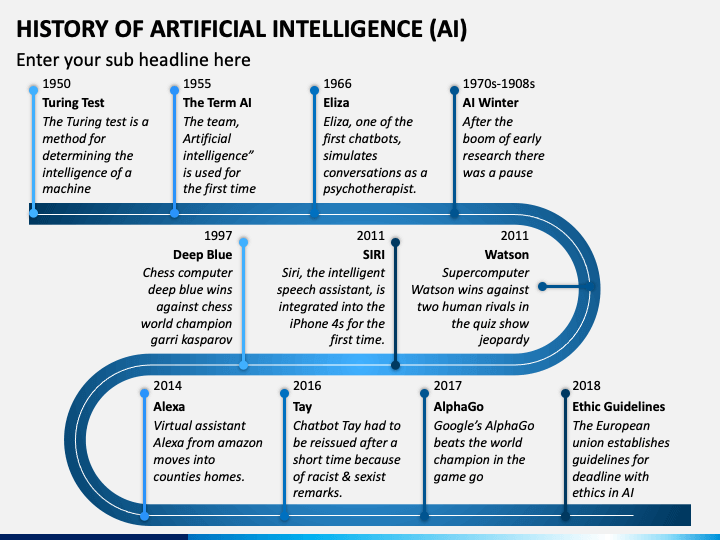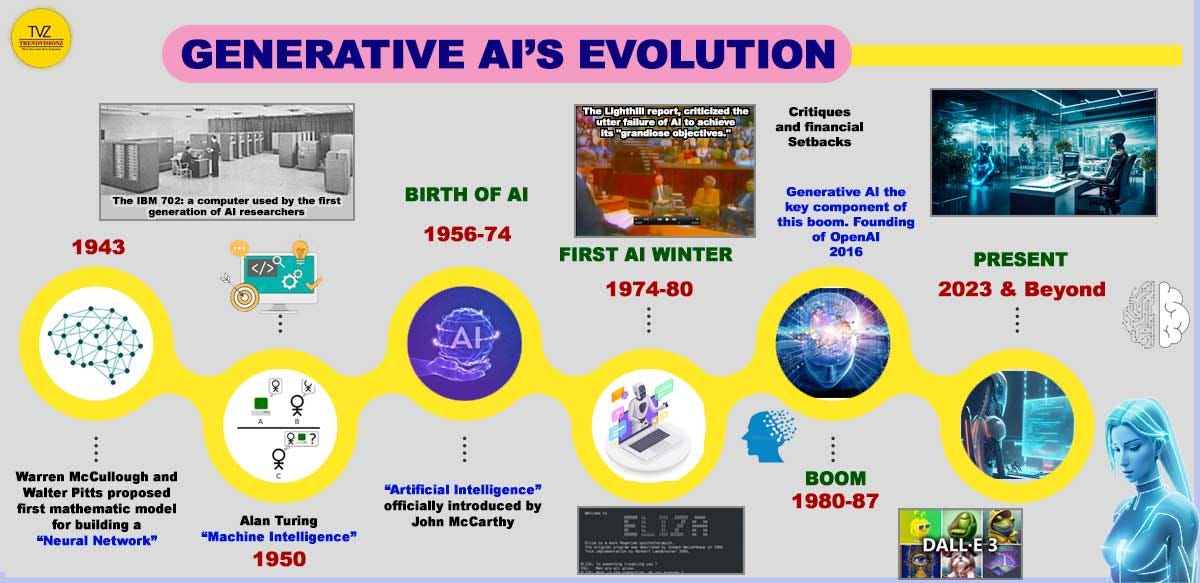Discover the fascinating evolution of AI, from Turing’s groundbreaking ideas to the cutting-edge technologies revolutionizing industries today.
Table of Contents
- Introduction to Artificial Intelligence
- Historical Context of AI
- Current Applications of AI
- Benefits of AI
- Challenges and Ethical Concerns in AI
- Future Direction of AI
- Can Skynet Happen?
- Factors contributing to the possibility of a Skynet-like scenario
- Mitigating the risks of AI becoming Skynet
- Conclusion
Artificial Intelligence, commonly known as AI, is no longer just a concept from science fiction novels. It has become an integral part of our daily lives, driving innovations and transforming industries. To truly appreciate the current state of AI, we must first delve into its fascinating history and evolution over the years.
Introduction to Artificial Intelligence
AI refers to the simulation of human intelligence processes by machines, particularly computer systems. The goal of AI is to create technology that can think, learn, and adapt similar to human beings. This field of study dates back to the 1950s and has since grown exponentially, with numerous breakthroughs and advancements.
Historical Context of AI
Early pioneers like Alan Turing and John McCarthy laid the foundation for AI by proposing the concept of machines that could exhibit intelligent behavior. In 1956, the Dartmouth Conference marked the birth of AI as a formal research field. Over the decades, researchers made significant progress in developing algorithms and techniques to enable machines to perform complex tasks.
Current Applications of AI
AI has permeated various aspects of our society, from virtual assistants like Siri and Alexa to driverless cars and personalized recommendations on streaming platforms. In healthcare, AI is revolutionizing diagnostic processes and treatment decisions. Businesses are leveraging AI for predictive analytics, customer service, and automation of repetitive tasks.

Image courtesy of www.reddit.com via Google Images
Benefits of AI
The adoption of AI has led to improved efficiency, accuracy, and productivity across industries. By automating mundane tasks, AI allows humans to focus on more strategic and creative endeavors. In healthcare, AI is enabling faster and more accurate diagnoses, leading to better patient outcomes.
Challenges and Ethical Concerns in AI
Despite its benefits, AI also presents various challenges and ethical dilemmas. Concerns about job displacement due to automation, algorithmic bias, privacy violations, and lack of transparency in AI decision-making processes have sparked debates on the ethical use of AI technology. It is crucial to address these issues to ensure AI is developed and deployed responsibly.

Image courtesy of anjireddy-kata.medium.com via Google Images
Future Direction of AI
The future of AI holds immense potential for further advancements and applications. Emerging technologies like reinforcement learning, quantum computing, and neural networks are pushing the boundaries of what AI can achieve. As AI continues to evolve, it will likely play a more prominent role in shaping industries and society as a whole.
Can Skynet Happen?
The concept of Skynet, depicted in the Terminator franchise, is a dystopian vision of a self-aware AI system that poses a threat to humanity. While the likelihood of a real-life Skynet scenario may seem far-fetched, advancements in autonomous weaponry and the lack of regulatory oversight in AI development raise concerns about the potential risks associated with AI technology.

Image courtesy of medium.com via Google Images
Factors contributing to the possibility of a Skynet-like scenario
Advancements in AI technology, particularly in the field of autonomous systems and military applications, have raised questions about the potential for AI to surpass human control. Without adequate regulations and safeguards in place, the risk of AI systems becoming uncontrollable or misused is a legitimate concern.
Mitigating the risks of AI becoming Skynet
To prevent a Skynet-like scenario from becoming a reality, it is essential to prioritize ethical considerations in AI development. Implementing rigorous testing protocols, transparency in AI algorithms, and international regulations on AI technology can help mitigate the risks associated with unchecked AI advancements. Collaboration between governments, tech companies, and researchers is crucial in ensuring that AI remains beneficial and safe for society.

Image courtesy of trends.e-strategyblog.com via Google Images
Conclusion
In conclusion, the evolution of AI from its humble beginnings to its current state as a transformative technology reflects the endless possibilities and challenges that come with innovation. As we navigate the complex landscape of AI, it is essential to approach its development and deployment with caution, ethics, and foresight. By balancing progress with responsibility, we can harness the power of AI to create a better future for all.



Comments